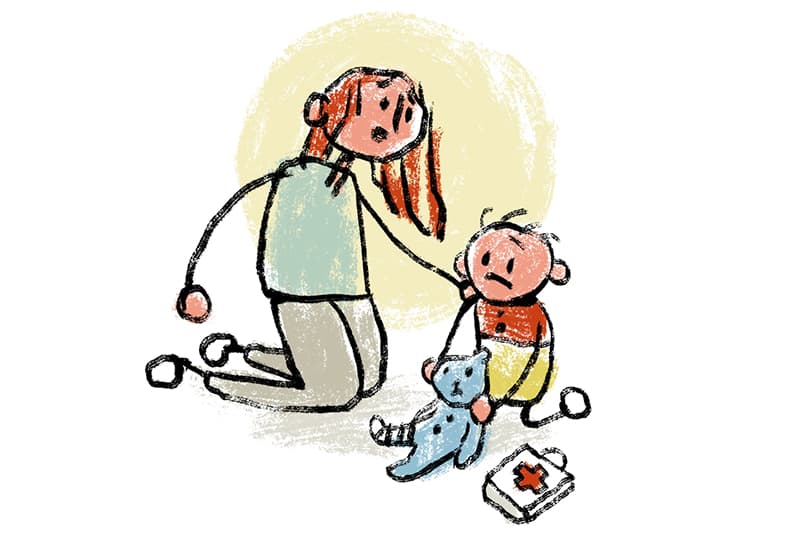The emotional one

Parents with an emotional parenting style are caring and express their emotions.
Many of us Norwegians have been taught to control ourselves and largely to censor our negative emotions. This particularly applies to anger. But even if we try to censor ourselves, this doesn't mean that we can't have these feelings.
We are also born with different ways of dealing with our emotions, what we call our "innate temperament”. Some of us can become sad more easily and get in touch with this feeling of sadness, while others fly into a rage and get angry. This doesn’t mean that we should be able to do whatever we want but means that we can’t help having the feelings we have.
The question is: How can we cope with them in the best possible way?
Our emotions help us, as a kind of inner compass, so that we can navigate correctly through life. But this works best when our feelings are fresh and do not concern something else we are carrying with us.
In stressful situations the emotional parents will be able to recognise that their feelings are taking over more than they would like. For example, some people will find it hard to calm down when they get angry or sad and might then resort to tears or give up and let their child decide.
This does not mean that you are a bad parent. However, it can be useful to think about some things:
Things to keep in mind
In what situations do I typically get sad, angry or give in?
Is there anything that could help in the situations when things get difficult with my child? For example:
- Take a “time out” by yourself, go to the bathroom or somewhere else for a minute.
- Try to accept that you have these feelings. When we validate our own feelings, it is easier to calm ourselves down.
- Is there anything else you know that works for you?
Try to find out what are your emotions and what are your child's. This is difficult, and you will definitely get mixed up.
Do you have someone to talk to?
If you find that your emotions are overwhelming, and your everyday life is affected by more quarrelling and difficult situations between you and your child, it may be helpful to talk to someone about it.
You can start with the simplest thing, such as the Family Welfare Services, where you can call to get in touch.
And: Your child won't be harmed by your showing your emotions. However, it can be a good idea to think about the way you as a parent deal with the emotions you find difficult. Because our children will learn from and take into their adult lives the way we deal with and solve difficult things in our lives.